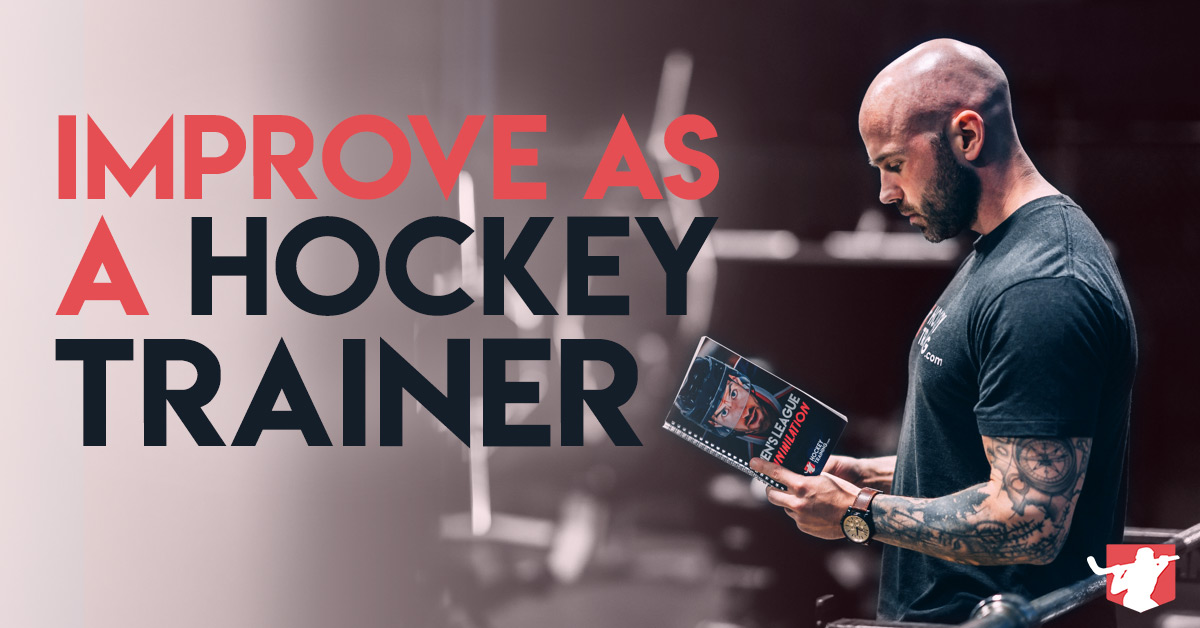This article is my unfiltered opinion of what I think it truly takes to succeed at the highest possible levels in the hockey strength and conditioning industry.
It’s not secret formulas.
It’s not starting your own supplement company.
And it’s definitely not ripping off other coaches’ ideas and calling them your own.
Instead, it’s about coaching.
Excellent coaching will not only give you financial freedom, but it will also lead to a lifetime of doing what you love and lead you to being recognized as a world-class coach in this industry.
When you put the skills together to become a good coach, you will inevitably create long-term success for your hockey players – which in turn will create long-term career success for yourself and eventually allow you to live the life you want.
“Coach Garner, You’re Doing Such Amazing Stuff Now!”
I get a message like this from time to time, and I’m super grateful every time somebody thinks that what I’m doing here at Hockey Training is cool.
I’ve been in this industry a long time now and have learned in dog years (7 years experience for every 1 year in the business) because of how many hours I put in every day and how many hockey players I have helped improve their performance on the ice (which is into the hundreds of thousands at this point).
When I look back at it all now from a birds-eye view, it’s very difficult for anybody to tell me anything other than that it was my coaching ability that got me to where I am today.
I got to where I am in the hockey industry through an acquired and applied coaching skill set.
I don’t have a PhD, I don’t have any secrets, and I was definitely never an NHL caliber hockey player.
Instead, my coaching skills are what have allowed me to have a long, stable, and successful career, doing what I want to do within my favorite sport of all time.
Coaching is your key to success, and don’t let anybody tell you anything otherwise.
The “Missing Element” To Your Success
What’s funny to me is that I attribute a large portion of my success on the shoulders of my coaching ability, yet, any hockey training seminar you attend or sports science symposium topic-list you read – the idea of “coaching” seems completely absent.
Seminars, symposiums, and courses are getting more and more carried away with a never-ending wave of information and science. Yet, they don’t realize this is coming at the expense of teaching and creating insightful leaders who actually help hockey players of all levels reach and maintain their goals.
This hockey industry has changed since the time I first got into it.
Well, it’s always changing.
Sometimes for good, and sometimes not.
Each era assumes with no lack of arrogance that this is the new “right way” to do things.
After watching these “right ways” consistently come and go time after time, one thing I know for sure is that the knowledge-base changes considerably, but the coaching and leadership skills do not.
Sure, a lot of what cycles through in this industry is just a bunch of marketing gimmicks and pseudoscientific nonsense.
But, good coaches will actually change their thinking over time as new and legitimate research comes out to open new avenues of thinking.
That’s fine, and it’s actually a good thing.
But, what it takes to be a good coach will never change. Ever.
Know The Hockey-Specific Science
If you really want to take your career to the next level in this sport, then you need to make sure the ongoing education you’re exposing yourself to is truly hockey specific.
As the sport evolves, you can’t just have a general knowledge of fitness or even sport-specific training.
Instead, you need to take it a step deeper and truly immerse yourself within hockey-specific training science.
Sport-specific training science is different than hockey-specific training science.
“Sport-specific training” is only one step away from “general fitness training” because certain research suggests you can receive an improvement in your general functional outputs.
But, hockey-specific training science is many steps away from general fitness training because it creates the highest degree of strength transfer from your dryland work to your on-ice performance.
Meaning, you aren’t in the weight room to just work on your strength and conditioning. Instead, you are in the weight room to significantly improve your hockey-specific performance.
There was a time when you could get away with a more general approach, but those days are dead.
Modern-day hockey players demand results, and they demand them right now.
You’re only going to get that if you partake in ongoing educational programs that focus exclusively on a hockey-specific approach.
Avoid The Hockey Training Gimmicks
I can say without a shadow of a doubt that the skill-set needed for long-term career success in the hockey industry lies completely outside of the “secrets” and “tricks” that are sold to you on a daily basis.
There is no pot of gold at the end of the rainbow, where you will finally find the exact training and nutrition knowledge that is guaranteed to give you the best coaching career possible for the longest period of time.
Instead, it’s people skills and coaching skills that will stand the test of time and allow you to be who you want to be in this industry.
Now, of course, domain-knowledge is still essential, and that’s why I discuss the in-depth science behind sport-specific training and nutritional program design on this site to an extensive degree.
But, that “extensive degree” of domain knowledge doesn’t mean a whole lot unless it is matched up with an equal amount of legitimate application skills.
Knowledge is nothing without application, and application is nothing without knowledge.
The bridge between these two is your ability to properly communicate and coach what you know to create the best possible hockey players.
Solving The Puzzle Of Your Hockey Training Career
Think about your career as a really big puzzle for a moment. One of those puzzles that have thousands of small pieces.
Focusing on the individual pieces with no thought as to what the bigger picture looks like is where you are going to run into problems, frustration, and confusion.
You will become chained to the small details, but just a quick glance over at the box, which has the finished picture on it, would give you an idea of the general direction you should be heading.
You look at the bigger picture and work your way backward from there.
This is precisely what a great coach does.
The great coach looks at the bigger picture and doesn’t allow themselves to be wrapped up in all the small details until it’s necessary to do so.
The great coach puts this piece here…and that piece there…and continues to chip away at the puzzle while always keeping the long-term “big picture” in mind.
A great coach isn’t just thinking about the small pieces fitting together. Instead, a great coach is thinking where these two pieces fit together within the big picture of it all because that’s what should tell you that those two pieces belong there in the first place.
Meditate on that for a moment and connect it to how you approach your hockey programming and how you approach your career in the hockey strength and conditioning industry.
You will find striking similarities in big-picture reverse engineering. Yet, it’s all too often lost in a sea of everyone worrying about the tiny details of advanced program design tactics.
Creating Real Success in the Hockey Training Industry
The success of your hockey players is not just about what you know. Instead, it’s all about what you do and all that you can get your hockey player to do.
It’s about the doing, not the knowing.
Hockey athlete adherence to program design is the key.
The knowledge you have gained watching my videos on YouTube, listening to my detailed podcast episodes, and reading the 100+ article submissions I have here on the site will get your hockey players great results only if you have mastered the “doing” side of the coaching equation.
When a great hockey coach considers the players’ adherence, they instantly consider the:
- Immediate
- Accumulative
- Long-term
With respect to their psychology.
It’s not just about what puzzle piece you’re using right now, but how it’s going to impact the big picture for the rest of their hockey career.
Short term success is easy. I truly don’t care about 4-Week “athlete transformations”.
Anyone can starve and overtrain a motivated athlete and post a before-and-after photo on their company website. Whoop de frigging doo.
But, if this transformation isn’t sustained, how can it be considered anything but a total failure?
A real coach considers how what the hockey player is doing today will affect what they can do tomorrow and for the rest of their hockey career and life.
In other words, don’t think about “quick transformations” – instead, consider “hockey career transformation.”
It will only make you stand out more like a true coach – one that considers how to get the fastest results but does it in a way that is backed by the science of training and the art of coaching.
The Complete Hockey Coaching Solution
The above article gives you just the tip of the iceberg in terms of what it takes to be an excellent coach, but unless that is paired with world-class hockey program design skills, you will be not reaching yours or your hockey athlete’s true potential.
If you want the complete blueprint on how to master the science of hockey training and combine it with the art of coaching to turn your passion for hockey into a massively successful career, then the brand new Hockey Training Specialist course is precisely what you need.
This is the ONLY hockey-specific certification course in the world.
Which means by the time you complete it…
You’ll likely be the first and only coach in your area with this credential on your resume. This will draw the hockey parents and serious athletes to you like a magnet.
You will become such a popular hockey coach in your area that you can create your own schedule and never again be thrown into the 12-16 hour work shifts that so many trainers are accustomed to.
On top of that, your athletes will be getting life-changing transformations on the ice, and through word-of-mouth, all hockey parents will know to contact you to get the best results.
Become a Certified Hockey Training Specialist and guarantee your success today. Click here to get started.
Final Thoughts
Domain knowledge will always be of equal importance to people skills in terms of having a long, successful, and impactful career in the hockey industry.
You can teach someone to deadlift correctly, you can teach them your calorie formula, and you can teach them the right supplements to take.
But to engage someone so that they maintain a passion for doing all of the above will always require ongoing communication skills (which is why the Hockey Training Specialist course is in a league of its own, you will learn to both create and effortlessly apply world-class hockey training programs).
We are in the “big picture” industry, not the small puzzle piece industry.
Being a successful hockey coach is about moving from the “how” into the “why.”
It’s about engaging the full potential of your athletes so that they can realize their long-term life transformation and see their results sky-rocket out on the ice.
This, my friend, is also how you will engage your own full potential to be as successful as possible in this industry in every way you can imagine.
Become one of the few people in the entire world that can call themselves a Certified Hockey Training Specialist by clicking here.

